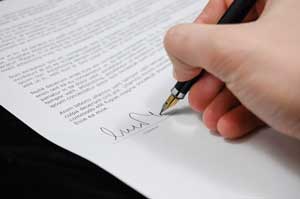If you’re preparing to buy a house, be aware of the extra costs you can expect to pay. The cost of buying a house is not just the purchase price. You will also need to consider legal fees, state taxes, mortgage fees, and potentially other expenses.
The Cost of Buying a House to Live In
Buying a house is likely one of the biggest transactions you will make in your life, so it pays to get the calculations right. Stretching your finances too far can lead to all sorts of stress. If this house is simply a place to live in, compare purchasing a home to renting. Both are perfectly good options that benefit different lifestyles and goals.
Prior to Purchase
After sorting out exactly what you need and want in a house, you can do some searches online. Australian’s, check out realestate.com.au.
Make sure you know your budget: not just how much money you’ve saved up and can afford to pay off, but also how much the bank will actually lend you. Before you go to auction or make an offer, you’ll need to get prior approval from your bank for a loan. This way, you can bid on the property with t
he knowledge that, after agreeing on a price with the seller, the bank won’t turn around to you and say they won’t lend you the money. The bank will assess your income and liabilities and give you an amount they would be happy to lend you as a mortgage on your new house.
Let’s say you pick out six properties to inspect over the next few weeks and you find one that you love and that fits your criteria. Let’s take the example from the renting vs buying post: purchasing an old 2 bedroom unit in Ringwood, Victoria1.

Building & Pest Inspection
Unless you’re a builder with the right experience, there will be things you simply can’t see regarding the stability of the structure, let alone what might be in the structure. Getting a building & pest inspection is important if you want to avoid a horrible surprise after your purchase. This could be your first expense: ~$4002
Legal Searches and Enquiries
There is more information about the property that isn’t easily available at a property inspection. Legal searches and enquiries are required to ensure there are no encumbrances on the property (restrictions on how the property or parts of a property can be used3). This might cost $250
Bank Valuation
It’s a good idea to go to a number of auctions prior to purchasing your own property. Not just to get a good understanding of how the auction process operates, but also to get an idea for how much similar properties are selling for. The asking price of a property is not usually a good guide for how much to pay. For example, the market might be dying down but the seller could be trying to get the old boom prices and so they put an asking price higher than what it’s worth and you’d be overpaying if you paid it. Also, a sales tactic of some agents is to put in an asking price significantly lower than the house’s true value in order to draw in a bigger crowd of people who think they’re going to get a bargain.
Do your research, and consider getting a proper valuation done. You can get a property valuation company to put a valuation report together for you, or you can approach a bank. This could cost you another $350
After Successfully Buying the Property
Congratulations! You were the highest bidder (or the seller accepted your offer) at $420,000. The house will soon be yours, but not yet.

You can buy at auction or through a private sale
Legal Fees & Government Charges
Property ownership details are kept on certain registries and the ownership details need to be transferred (government fee of $100) and if you’re not familiar with property legal documents, a solicitor needs to read over and prepare the documents that outline the transfer of title ($1,000).
Additionally, the Government will charge stamp duty on the property, which goes up with the price of the property. Your $420,000 purchase price incurs stamp duty of ~$17,350
Mortgage Fees
You aren’t going to be buying the house with just savings — you’ll need to get a loan. Let’s assume you want to keep your cash outlay as low as possible, so you plan to put down a 10% deposit.
Note: a deposit of less than 20% in Australia will cost your LMI (Lender’s Mortgage Insurance) — insurance you pay for that covers the bank, not you, in case you default on your loan payments. To avoid this expense, save up for at least a 20% deposit.
LMI: $8,0004
Loan application fee: up to $600
Mortgage registration fee: $100
Council & Water Rates
When you buy a property, you need to pay the seller the remaining yearly or quarterly council rates, such as water and land5. Allow $500
Summary of Costs
So you can expect to pay about $28,000 on top of the $420,000 2 bedroom unit in Ringwood.
If you are looking at saving up for a home in the coming years, you’re looking at a minimum of $70,000 up front if you want to buy with a 10% deposit. Monthly repayments @ 5% p.a. are ~$2,000 for a principle & interest loan over 30 years, or $1,575 for an interest-only loan.
If you want to avoid the $8,000 LMI fee, save up for a 20% deposit. You’ll need $104,000 up front and monthly repayments @ 5% p.a. are ~$1,800 for a principle & interest loan over 30 years, or $1,400 for an interest-only loan.
Extra Costs for Buying an Investment Property
If you aren’t purchasing this property to live in, you might consider some extra arrangements (and associated costs) .
First, what entity should you buy the property through? You, personally? Joint ownership? A company? Or, a trust? Purchasing a house will give you a different outcome depending on which of the entities you buy it through.
The main differences are in tax and legal liability. For example, (in general):
- if you own the property in your peronal name, you risk more money in the event of being sued personally;
- profiting from selling your actual home (i.e. not an investment property) that is held in your own name doesn’t cost you any capital gains tax; and
- buying a property through a company/trust structure can save you tax if the house is an investment.
I will explain the differences in a future post, but keep in mind that getting advice before you consider any of the above is crucial, and this information is not to be taken as financial advice.
Cost of an accountant’s advice: $500 — $1,000
Cost of setting up a company or trust structure: $1,000 — $3,000
Lastly, it’s worth sitting down with a financial planner or accountant to work out how the property you want to invest in ties in with your overall plan for financial independence or retirement.
Cost of an accountant’s advice: $500 — $1,000
Types of expenses and estimates of costs have come from realestate.com ↩
for example, I looked at the files for a property which had an encumbrance: you couldn’t build over a section of land at the back of the property because of a sewerage or rainwater pipe going through the yard. This is the kind of thing that can stop a development from being approved that you want to find out before you buy. ↩
Using this calculator ↩
source: realestate.com ↩



